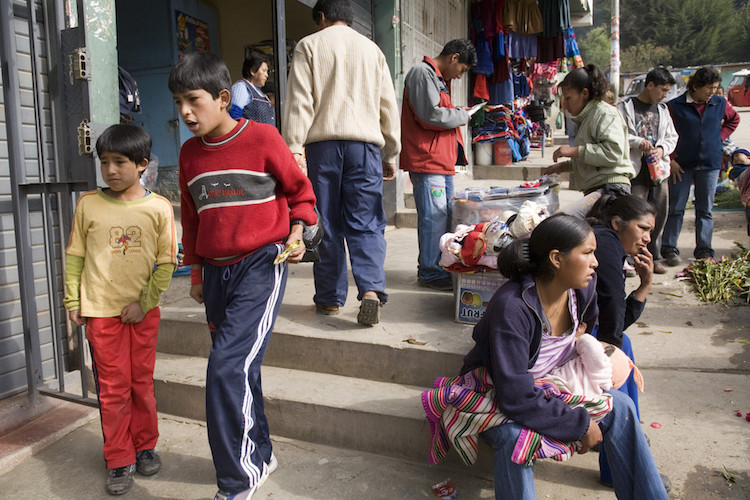By Kwame Buist
ROME (IDN) – Over the last three decades, the countries of Latin American and the Caribbean have experienced a profound transformation which has extended to rural areas. All countries in the region, except for Haiti, are now considered middle-income.
This economic and rural transformation has resulted in many benefits, especially between 2004 and 2013, when millions of people left poverty behind. However, despite this success, over one-quarter of the region’s population continues to live in poverty. Now, the economic downturn of most of Latin America’s economies over the last few years threatens to send millions more back under the poverty line.
Against this backdrop, the Rome-based International Fund for Agricultural Development (IFAD) has been funding a series of projects designed to help societies in the region move forward towards equality, social justice and inclusive, sustainable economic growth.
Among these are a rural sustainable development project in the semi-arid Brazilian region of Bahia, an integral value chain strengthening programme in Bolivia’s high plateau region and a sustainable development project for communities in semi-arid areas of Mexico.
In Brazil, the Rural Sustainable Development Project in the Semi-arid Region of Bahia has been designed to reduce rural poverty through income generation, increased production, creation of agricultural and non-agricultural work opportunities, and human and social capital development.
It aims to strengthen the capacities of individuals and community and economic organisations in rural areas, and to support the development of sustainable productive activities and their insertion into value chains and markets.
Project components include human and social capital development to promote the capacities of the target population, mainly through the participatory formulation and implementation of business or work plans, and productive development, with financing to improve agricultural production, develop agro-processing and non-agricultural businesses, and sustainably manage natural resources, among others.
The project, which operates in 30 municipalities with high incidences of poverty and vulnerability, pays particular attention to the needs of women and young people. In addition, the project gives priority to small rural producers’ economic organisations, such as cooperatives and farmers’ associations, which have income-generating potential that can be realised in the short term.
In Bolivia, South American camelids make a significant contribution to the economy of the High Plateau region, where people’s welfare is closely linked to the income derived from their breeding as well as the processing and marketing of their by-products such as wool fibre and meat.
To boost the camelid sector, the Integral Strengthening Programme for the Camelid Value Chain in the Bolivian High Plateau addresses challenges such as low productivity, limited availability of feed and water, low value-added of raw material and lack of access to services.
The programme extends over 47 municipalities in La Paz, Oruro and Potosi departments which are home to 67 percent of camelids in the country. Almost 64,000 rural families, composed of small-scale producers, artisans, micro businessmen, indigenous peoples, women and youth engaged in camelid breeding are expected to benefit.
The programme is expected to contribute to reducing rural poverty and child malnutrition, increasing the physical assets (productive infrastructure) and financial assets (capital) of programme users, enhance the integration of business initiatives of programme beneficiaries in the South American camelid production complex value chains, and increasing the income of participating families.
It is also envisaged that programme implementation will lead to the adoption of practices that are conducive to sustainable natural resource management, and will extend social inclusion to women and young people.
In Mexico, the objective of the Sustainable Development Project for Communities in Semi-arid Areas is to increase the income and employment of rural poor and indigenous households in the Mixteca and Mazahua areas. According to IFAD, it represents an investment in developing and consolidating pro-poor, small-producer value chains by strengthening the social fabric of rural and indigenous communities.
Among other, the project is designed to promote the formation and development of grass-roots economic organisations, develop social and entrepreneurial management capacities among a new cadre of local leaders, including rural and indigenous women and young people, and support sustainable agricultural production through the rehabilitation and sound management of natural resources.
The project is also developing entrepreneurial linkages and rural micro-enterprises while facilitating wider access to markets.
The project area comprises 50 priority municipalities that are home to most of the Mixteca indigenous population and two municipalities where about 50,000 Mazahua indigenous people live.
The target group consists mainly of subsistence agricultural producers who cultivate communal lands, unorganised small livestock producers, artisans with weak linkages to markets, and rural and indigenous women and youth.
IFAD partners with governments, NGOs and communities to draw up pro-poor policies that benefit rural areas, and to implement them in the most effective ways.
By the end of 2016, the Fund was working with 19 governments to deliver 37 ongoing programmes across the region, with a total investment of US$770 million.
Our breadth of expertise and geographical reach enables us to promote knowledge-sharing between projects and regions. Partnerships are fundamental to our efforts to further expand policies that level the playing field for small farmers through policy dialogue and South-South cooperation. [IDN-InDepthNews – 24 September 2018]
Photo: 6 out of 10 young people in the region work in the informal sector, with lower wages, and less or no benefits or social protection. Such work in Latin America and the Caribbean is often related to domestic work, street vending, illegal mining and farming. (ILO) ©IFAD/Pablo Corral Vega
IDN is flagship agency of the International Press Syndicate.
facebook.com/IDN.GoingDeeper – twitter.com/InDepthNews

